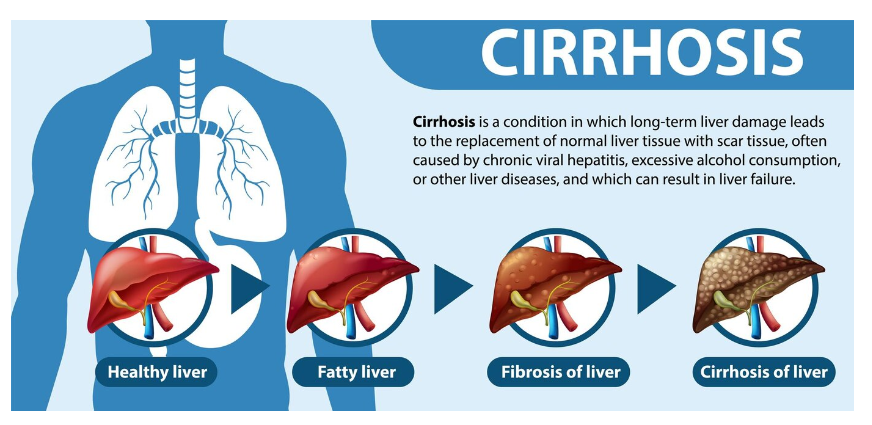
Complications of Cirrhosis: Ascites, Varices, and Hepatic Encephalopathy
Introduction:
Cirrhosis is a severe liver condition that can lead to many complications affecting various parts of the body. In this blog, we will focus on three common complications of cirrhosis: ascites, varices, and hepatic encephalopathy. Here’s what you need to know about them.
Ascites: Fluid Buildup in the Abdomen
Ascites is the buildup of fluid in the abdomen, causing swelling and discomfort. It happens when cirrhosis increases pressure in the veins of the liver (portal hypertension). This forces fluid into the abdomen. Ascites can cause difficulty breathing, pain, and a higher risk of infection.
Varices: Swollen Blood Vessels
Varices are swollen blood vessels that develop in the esophagus or stomach. They form when cirrhosis raises pressure in the veins leading to these organs. Varices can bleed, which can be life-threatening. Signs of variceal bleeding include vomiting blood, black stools, and lightheadedness.
Hepatic Encephalopathy: Brain Dysfunction
Hepatic encephalopathy occurs when cirrhosis prevents the liver from removing toxins from the blood. This leads to a buildup of toxins in the brain, causing confusion, personality changes, and difficulty concentrating. In severe cases, it can lead to a coma. Hepatic encephalopathy needs urgent medical attention.
Managing Cirrhosis Complications
Treating cirrhosis complications involves managing symptoms and preventing further problems. For ascites, diuretics may help reduce fluid buildup.
To lower the pressure in the veins for varices, doctors might prescribe beta-blockers. For hepatic encephalopathy, medications like lactulose can help lower ammonia levels in the blood. Sometimes, procedures such as paracentesis (draining fluid from the abdomen) or banding varices are needed.
Conclusion
Cirrhosis can cause serious complications like ascites, varices, and hepatic encephalopathy. Understanding these issues and getting prompt treatment can improve quality of life. Individuals with cirrhosis should work closely with their doctors to manage these complications effectively.
Learn more about liver diseases and how they impact overall health on our liver health page.
For detailed medical insights into hepatic encephalopathy treatment, visit

